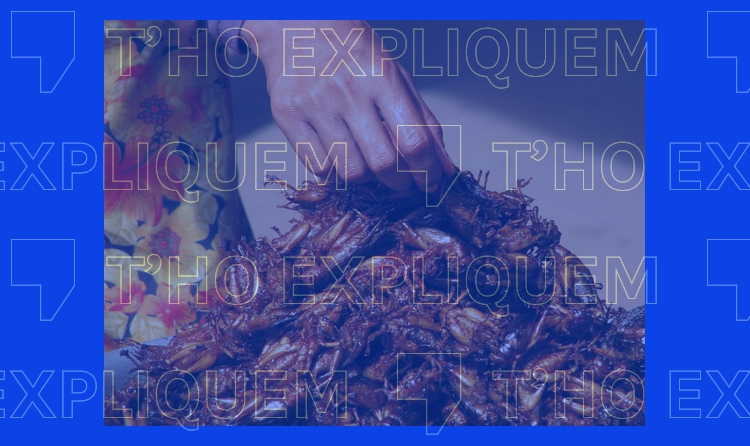What we know about the alleged “new law” that would force European citizens to eat insects

The European Union will not force its citizens to eat insects, it is a rumor

There are messages circulating on various forums these days saying that the European Union is supposedly going to force its citizens to eat insects by creating a law or regulation. This is a rumour that has reached a fair amount of the countries in this area, including Spain, and various members of the International Fact-Checking Network have warned about its rise.
As with many of the rumours that go viral social networks, this one has some truth to it. On 5 January of this year, the European Commission authorised the placing on the market of the larvae of Alphitobius diaperinus (a.k.a. the lesser mealworm or litter beetle) for use in foodstuffs, albeit only in frozen, paste, dried and powdered form. In this implementing regulation, however, there is no mention of people being forced to eat this type of product, because no Member State can force its citizens to consume a specific food. The EC also insists on this on its website, stating that “it is up to consumers to decide whether they want to eat insects or not”.
According to the EC website, the litter bug larvae can be used “as a food ingredient in a number of food products”. It is now authorised to be sold in paste, dehydrated, ground or frozen form. It can also be used in food supplements, although they are not recommended for consumption by people under 18 years of age. The house cricket may be used in powdered form to make breads and cookies, meat substitutes, soups and concentrates or soup powders, among other things. In any case, these products must be clearly labelled according to the regulation on products considered Novel Foods, including the ones that were recently approved. And that is in addition to the usual labelling regulations, which must also be complied with.
In order to approve the use of both the litter beetle and the house cricket, the European Food Safety Authority (EFSA), which safeguards food safety in the countries of the EU, published various reports beforehand that analysed their safety. The authority concluded that both “are safe under the proposed uses and use levels”, but their consumption “might trigger primary sensitisation […] and allergic reactions in subjects allergic to crustaceans, mites and molluscs”. That is why the agency recommends “continuing to research the allergenicity of the insects”.
Neither the first nor the last to be placed on the market
It is not the first time that the EU has authorised the sale of insects as food. Between 2021 and 2022, it approved three for sale and is currently looking into the authorisation of eight others. The reason is that, for over 10 years, the Food and Agriculture Organization of the United Nations (FAO) has been insisting on the potential benefits of consuming these invertebrate animals, both for individuals’ health and for the environment, due to their high content of proteins, vitamins such as B12 and healthy fats.
Their composition also makes them ideal candidates for “healthy and nutritious alternatives to staple foodstuffs […] such as chicken, pork, beef and even fish”, which, despite their similar characteristics, have a much higher environmental impact in terms of production. By contrast, breeding insects such as crickets requires fewer resources and less energy, according to the FAO.
A recurring rumour
The idea that governments are going to force people to eat insects is not new. In the past few months, social networks have been filled with YouTube videos and Telegram messages announcing a supposed plan of the “Agenda 2030”, whose ultimate goal is to “impoverish the population” via a regulation that will supposedly force or obligate Spanish citizens to eat insects. Even members of the Spanish far-right party Vox have used this argument to delegitimise the measures aimed at promoting the UN’s Sustainable Development Goals.
But none of these messages are true. The rumours circulating throughout Spain usually state that it was Spain’s Official State Gazette (BOE) that announced this new regulation, as was the case in a recent viral video. However, the truth is that all this publication announced was the approval of the sale of the litter beetle by the two companies specialised in cricket cultivation, Cricket One and Ynsect NL, as stated in the respective publications of the BOE (Art. 2).